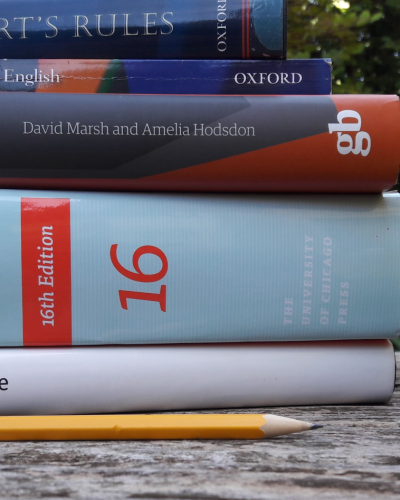How reliable are your sauces?*
I was teaching on the day, around 15 years ago, that every woman, man, and child in the Western world simultaneously bought a smartphone.
I’d already been "connected" for over a decade by then, and remembered the age of modem handshakes and making a three-course meal while a new page loaded. And the first weeks of Google. So it was from an unusual but certainly not unique perspective that I watched the world opt for permanent connectivity.
One thing was clear: If you could "Google it", immediately, anywhere, all the time, you didn’t need to remember it, and certainly not to "know it". And suddenly, no one "knew" or remembered anything. Just like we had already all forgotten everyone’s phone number (because it was now in our mobile phone), everyone now forgot everything else, including how the political system functioned, the fastest route into Holborn, London from the east, the birthdays of even those dearest to us, and the ratio of flour to butter in a decent roux. All these things were now "in" our smartphones. So we could comfortably forget them too.
But another thing was clear as well: no one was paying much attention to where their "Googling" was taking them, to what the source of their "results" was, or to whether that source was reliable or not.
And it was a time of failed bechamel sauces, due to some pretty poor advice on flour-to-butter ratios.
This was strange to me. This was inexplicable. The reliability of sources of information matters. But everyone now had a smartphone. And it didn’t anymore.
Fifteen years later I’m still taking my sources seriously. And now it’s me who is permanently connected. But to the Chicago Manual of Style, and the equally superb Merriam-Webster Unabridged.** Because one needs an excellent style guide. And one needs an excellent dictionary.
The importance I place on the reliability of my sources extends to the broadcasters I watch and listen to (I’m loath to call them "outlets", it gives the impression that they’re distributing news at knockdown prices). But just like the case of the stray typo in the Merriam-Webster Unabridged, even "authorities" must be approached with some caution regarding their use of language and their veracity.
I listen daily to a UK broadcaster, and a few years ago, in a rather disturbing piece on a young man’s long years in residential care, heard the following words:
“He is fed and watered like an animal.”
These words were attributed to a whistleblower whose aim was to raise awareness of the young man’s predicament. But they couldn’t be accurate, could they? “Fed and watered like an animal”?
I sought out the original broadcast interview with the whistleblower and no, he had not said "fed and watered like an animal". What he had said was
“He is fed and watered, like an animal.”
So, he had conveyed—with the pause that I have transcribed here as a comma—that animals are fed and watered, so, their very basic needs are provided for in a routine, mechanical way, and that the young man too had his very basic needs provided for in a similar routine, mechanical manner. And what I had always taken to be a reliable source of news—my UK broadcaster—had reported that the young man was fed and watered in the same manner that animals are fed and watered. So, not at all the same thing.
Such errors made by the broadcast media may be due to the pressures of cramming as much "news" as humanly possible into the time available. There’s no time to pause. There’s no time for a comma. So instead, they misrepresent someone’s words, changing the story fundamentally to suit their own self-imposed time constraints.
They might also be indicative of a competence problem, the presenter not knowing the difference. The same broadcaster regularly reports
"temperatures between 20 to 24 Celsius"
And "between you to me", we can both see what’s wrong there, right?
A few weeks ago, the same broadcaster reported on the current UK government’s relationship with taxation (following the publication of an Institute of Fiscal Studies report on the matter). And in the space of just a few hours I heard that the government had "raised more tax" than any government in history, that it had "raised more taxes" than any government in history, and that it had "raised taxes more" than any government in history. Which is it? It might, conceivably, be all three. But it might not. And how are we to know?
Here’s a tip: when (as the same broadcaster stated recently) you hear a 25 cent rise in the price of an item initially worth 95 cents described as a 47 percent rise, it’s probably time to look for a new source of news.
The moral of the story? We need reliable sources.
The flipside? We need to be aware that even reliable sources may at times be not as reliable as we thought. And it’s our job to know the difference.
* I make a respectable mayonnaise and am good with bechamel sauces. But my favorites must be a very quickly put together baby onion and tomato sauce-come-chutney and "green sauce", or salsa verde—a mixture including garlic, gherkins, parsley, egg yolk, and olive oil—both from Phaidon’s excellent The Silver Spoon.
** Merriam-Webster’s dictionaries are works of art. And it’s thus an honor to have submitted two corrections to the Unabridged—one a formatting issue the other a typo. Each was received with grace and gratitude. And though neither got me a cent off my annual subscription fee, I still look back with some satisfaction on those two "catches".
[Illustration by ELCS.ch. Time for a reliable sauce.]




